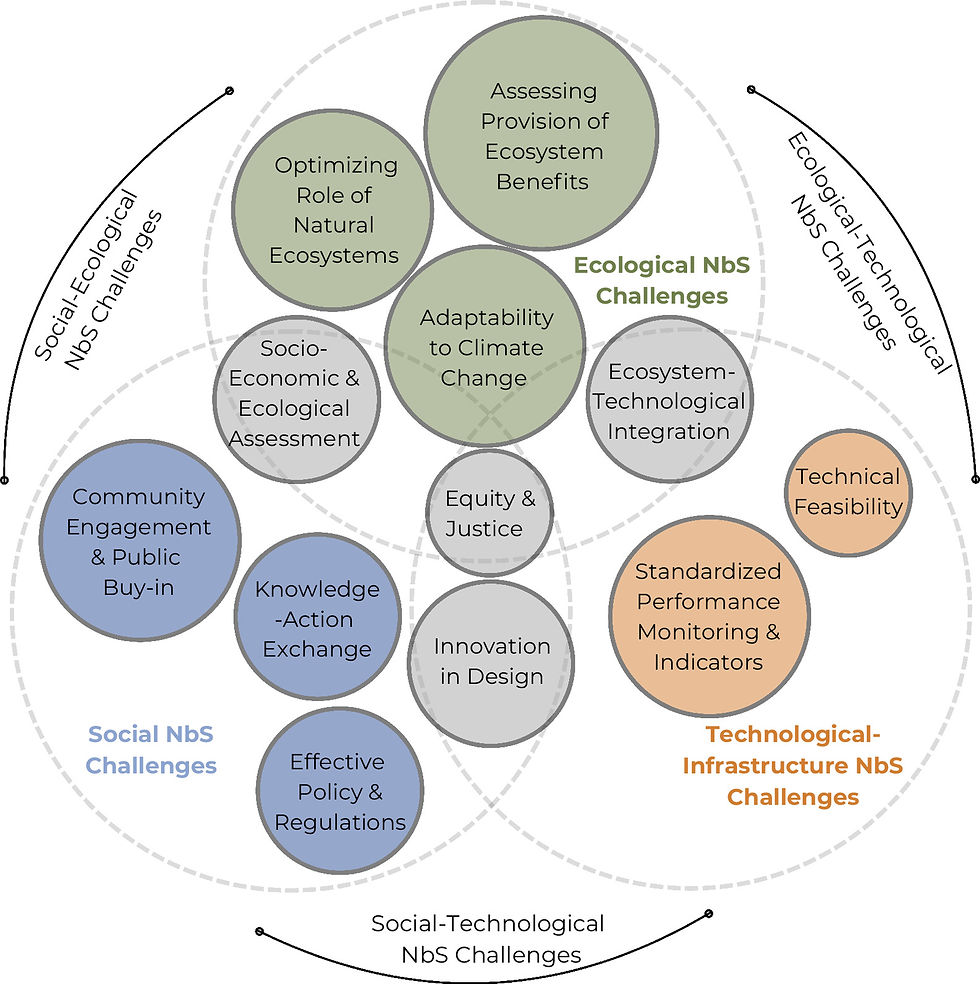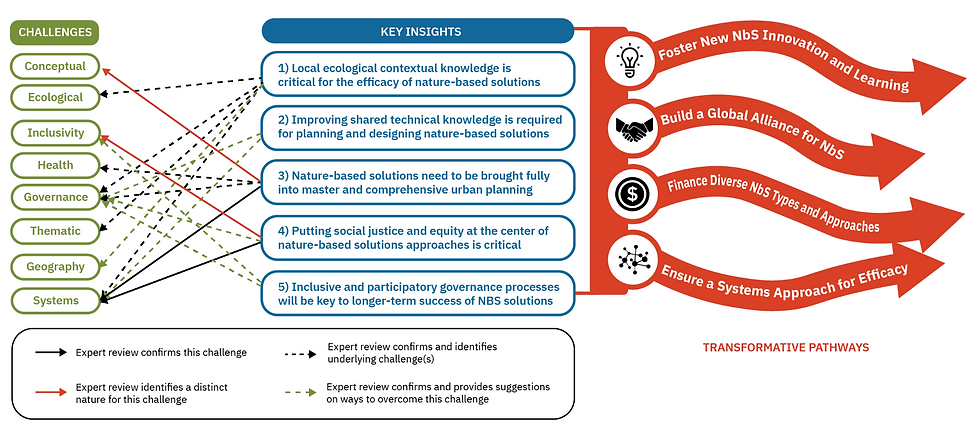Two new publications on nature-based solutions published in PNAS
- TIC UNESCOSOST

- Jul 17, 2025
- 3 min read
The UNESCO Chair on Sustainability has contributed to two new articles in Proceedings of the National Academy of Sciences (PNAS), focusing on nature-based solutions (NBS) for urban sustainability. Dr. Jordi Morató is a co-author of both papers, which appear in the PNAS Special Feature: “Nature-Based Solutions for Urban Sustainability.” The collection underscores how NBS can help cities tackle the intertwined challenges of climate change, resilience, and sustainable development, offering evidence-based pathways to greener, healthier, and more equitable urban futures.

The Special Feature comprises (i) a global synthesis for mainstreaming urban NbS, (ii) principles for just, inter- and transdisciplinary NbS, (iii) four “levers” to transform adoption by addressing power dynamics and incentives, and (iv) an Indigenous critique that advances biocultural framings and decolonial practices. Together, these contributions chart near-term opportunities—open, participatory knowledge sharing, pre-normative indicators, and safe-to-fail design—to scale NbS that are effective, equitable, and adaptable in cities worldwide. This Special Feature was organized by Nancy B. Grimm and Timon McPhearson.
NBS are defined as strategies that incorporate natural processes to improve urban environments, mitigate climate risks, and promote public health and equity. Unlike rigid engineered infrastructure, NBS offer flexible, adaptive responses to growing urban pressures.

The paper Nature-based solutions for urban sustainability, by Elizabeth M. Coolk et at., introduces the PNAS Special Feature on Nature-based Solutions (NbS) for Urban Sustainability, situating NbS as flexible, multifunctional approaches that harness ecological processes to help cities confront climate extremes, biodiversity loss, and aging infrastructure while advancing public health, equity, and access to nature. It traces the rapid policy momentum behind NbS (from local adaptation plans to national and international agendas) and frames cities as social-ecological-technological systems (SETS), an integration necessary to address complex, uncertain futures. Despite uptake, the authors underscore persistent uncertainties and context-dependence—especially when scaling beyond Global North framings—and call for rigorous assessment of benefits/trade-offs, stronger governance and political will, inclusive engagement, and standardized performance monitoring across diverse urban settings.

As the convening “network of networks” NATURA, the authors synthesize gaps identified by >150 partners worldwide: bridging research-to-practice, integrating socio-economic with ecological metrics, optimizing ecosystem functions under change, designing NbS compatible with dense infrastructure, and centering equity and justice to avoid uneven benefits or harms.
Nature-based solutions (NbS) have emerged as a key strategy for sustainably addressing multiple urban challenges, with rapidly increasing knowledge production requiring synthesis to better understand whether and how NbS work in different social, ecological, economic, or governance contexts.
The second articles published by Timon McPhearson et al. (Global synthesis and regional insights for mainstreaming urban nature-based solutions; PNAS 2025 Vol. 122 No. 29), stress that while momentum for urban NBS is growing, further interdisciplinary research, participatory governance, and integration of diverse knowledge systems are critical to scaling up their impact equitably across different global contexts. Insights in this Perspective are drawn from a thematic review of 61 NbS review articles supported by an expert assessment of NbS knowledge in seven global regions to examine key challenges, fill gaps in Global South assessment, and provide insights for scaling up NbS for impact in cities, Eight NbS challenges emerged from our review of NbS reviews including conceptual, thematic, geographic, ecological, inclusivity, health, governance, and systems challenges. An additional expert assessment reviewing literature and cases in seven global regions further revealed the following:
Local context-based ecological knowledge is essential for NbS success
Improved technical knowledge is required for planning and designing NbS;
NbS need to be included in all levels of planning and governance;
Putting justice and equity at the center of urban NbS approaches is critical
Inclusive and participatory governance processes will be key to long-term success of NbS.
We synthesized findings from the NbS review results and regional expert assessments to offer four critical pathways for scaling up NbS: 1) foster new NbS research, technological innovation, and learning, 2) build a global NbS alliance for sharing knowledge, 3) ensure a systems approach to NbS planning and implementation, and 4) increase financing and political will for diverse NbS implementation.

Proceedings of the National Academy of Sciences (PNAS) is a leading, multidisciplinary journal founded in 1915 and published by the U.S. National Academy of Sciences. It features original research, brief reports, and perspectives spanning the biological, physical, and social sciences, with a strong emphasis on high-impact, broadly relevant findings. PNAS uses a rigorous peer-review process handled by member or guest editors and requires a concise “Significance Statement” to highlight why a study matters beyond its subfield. The journal is preprint-friendly and operates as a hybrid open-access venue, offering authors the option to make articles freely available. Known for wide readership and high citation rates, PNAS aims to accelerate the communication of important scientific advances across disciplines and to policymakers and the public.




Comments